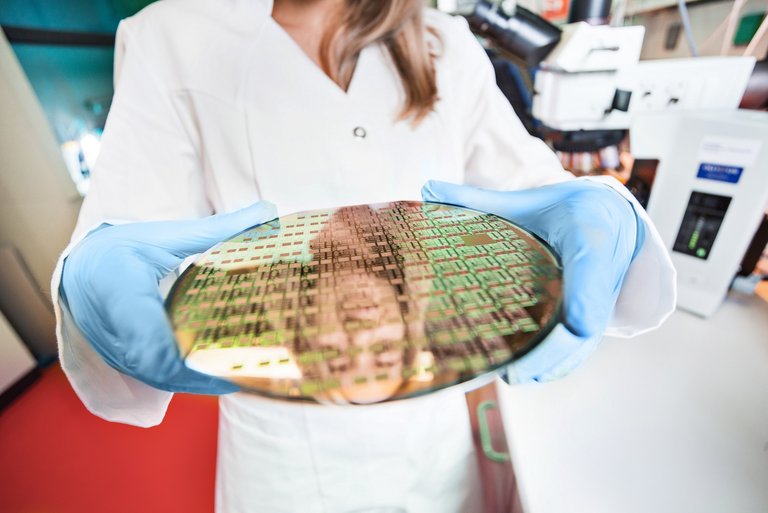TU Ilmenau has been awarded a research unit that will develop novel materials for biologically inspired electronics. The joint project "Memristive Materials for Neuromorphic Electronics" (MemWerk) will be funded by the Carl Zeiss Foundation as part of the "Breakthroughs" program with 4.5 million euros for five years.

The digital revolution and the ever-increasing use of artificial intelligence are changing technologies and our entire society in unprecedented ways. However, this is accompanied by a steadily growing demand for energy and ever higher carbon dioxide emissions. At present, the hardware used in IT applications around the globe already consumes a third of the total electrical energy produced worldwide - and the trend is rising sharply: scientific projections predict that in around 15 years, the total worldwide production of electrical energy will no longer be sufficient to cover the power requirements of IT hardware.
Scientists at the TU Ilmenau led by Prof. Martin Ziegler, head of the Micro- and Nanoelectronic Systems Group, are therefore focusing on so-called neuromorphic electronic systems, which promise far greater energy efficiency than today's electronics. In these electronic systems inspired by biology, memristive materials are the central building block. With their "memory", these intelligent materials make it possible to technically reproduce the learning and memory processes of biological systems. The word memristive is a combination of the English words "memory" and "resistor" for electrical resistance.
Intelligent memristive materials for neuromorphic electronics
In the "MemWerk" joint project, scientists from the fields of materials science, computer science, electrical engineering and information technology are investigating how the information processing of biological systems can be transferred into energy-efficient technical systems. The aim of the research project is to develop tailor-made intelligent memristive materials for neuromorphic electronics. Prof. Ziegler, scientific director of the "MemWerk" project, is confident that highly energy-efficient systems can be developed with memristive components in the future:
We will be able to technically reproduce the biological paradigms of information processing, learning and memory formation, more precisely than ever before and create completely new possibilities for information technology.
In theoretical and experimental work, a 26-member research group from six departments of the TU Ilmenau will carry out comprehensive material analyses, design innovative neural network structures, develop memristive materials and model and manufacture electronic components from these materials in order to realize extremely energy-efficient neuromorphic circuits. In addition, the scientists will develop a digital mapping system for memristive materials that directly relates the material properties and the technological parameters of material synthesis and device development to the characteristics and performance parameters of neuromorphic circuits. The scientists hope that this approach will enable them to tailor materials for neuromorphic electronics.
The "MemWerk" research group will carry out its work in the ForLab, which is located in the Institute for Micro- and Nanotechnologies at TU Ilmenau, IMN MacroNano®. ForLab is a research laboratory for neuromorphic electronics funded by the Federal Ministry of Education and Research as part of the infrastructure program "Research Laboratories Microelectronics Germany".
Contact
Prof. Martin Ziegler
Head Micro- and Nanoelectronic Systems Group

